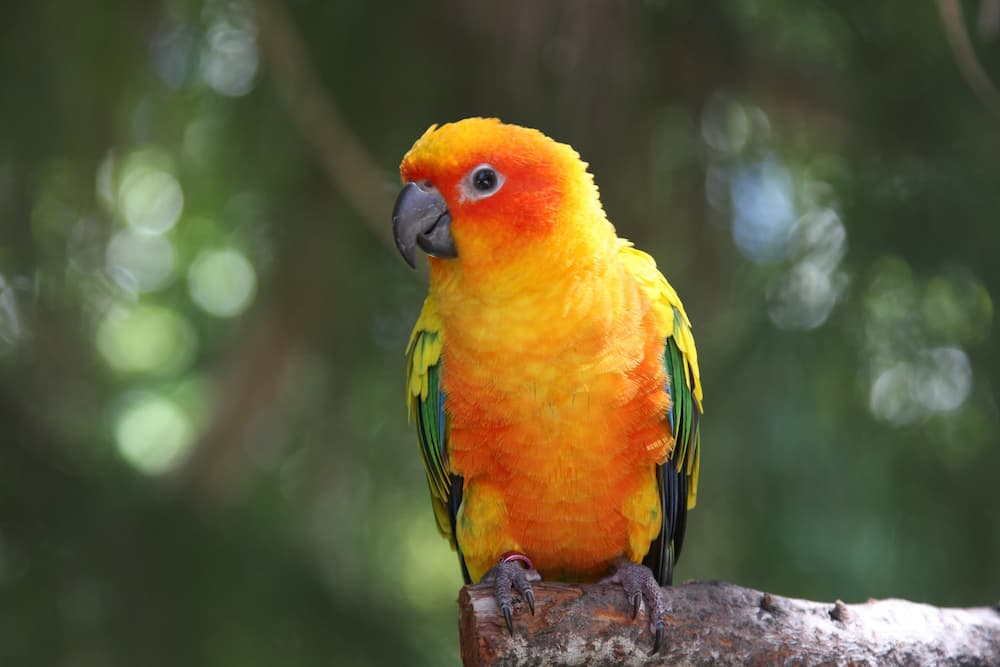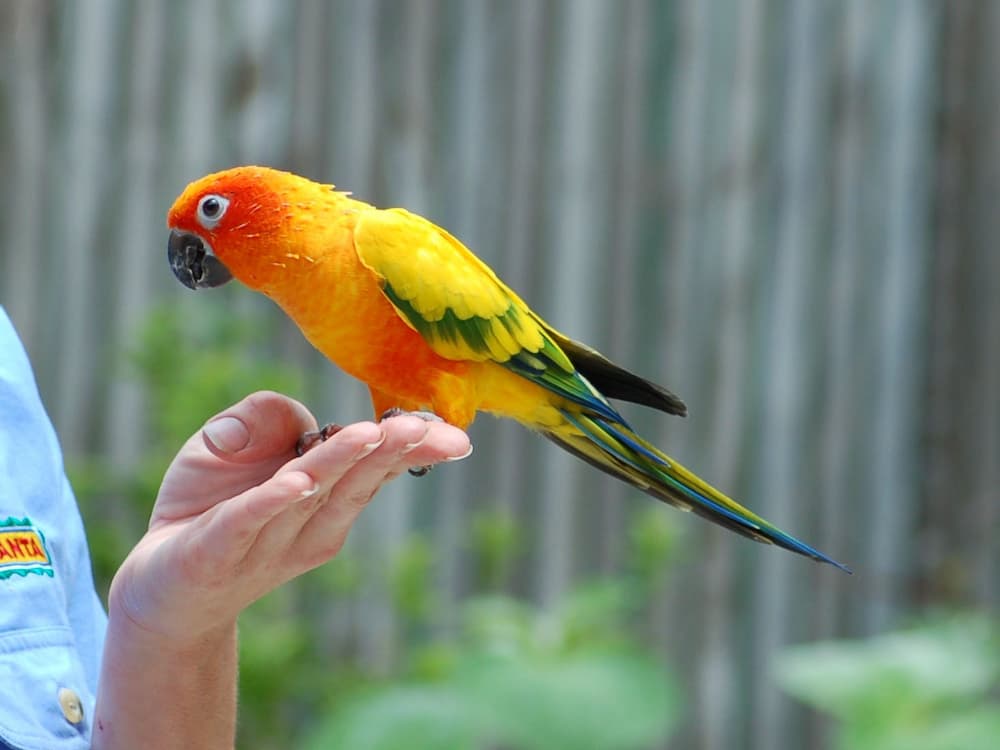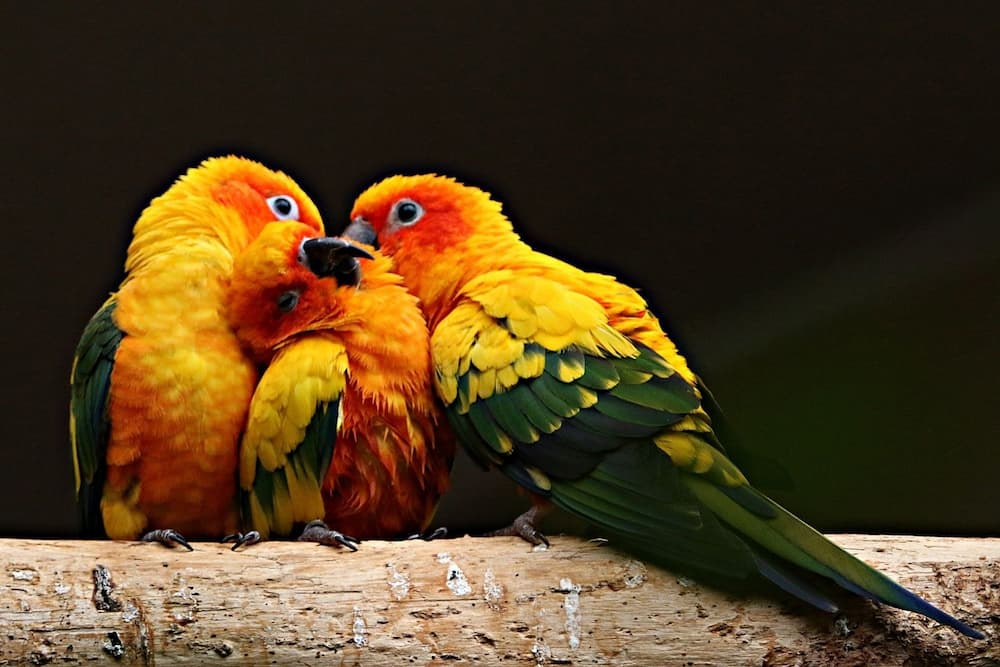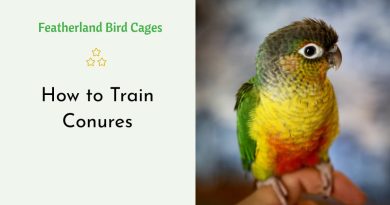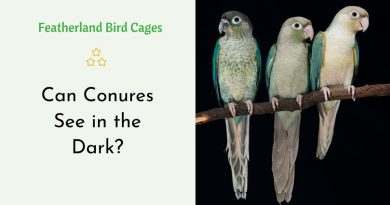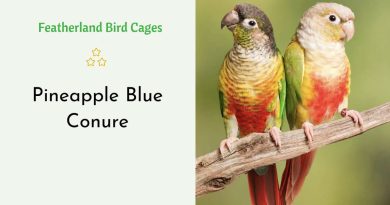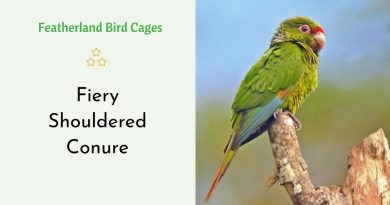Conure Vs Parakeet
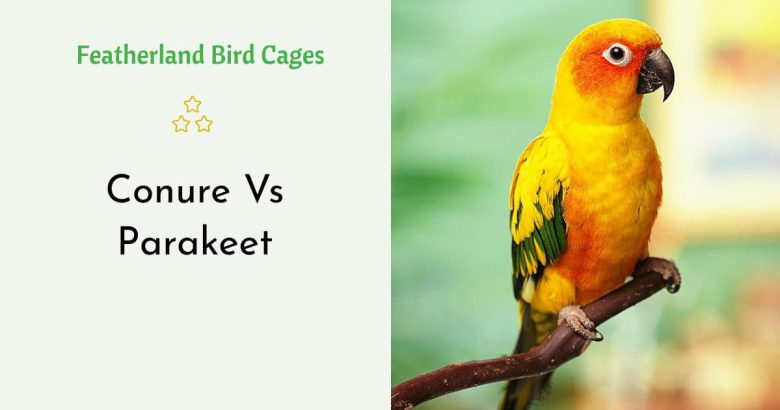
Conures come in an array of eye-catching colors and make great family pets. They get along well with children, adults and, with proper precautions, dogs and cats.
Unlike some birds, which prefer to be touched only on their heads and necks, conures tolerate being petted all over. With training and socialization, they will become beloved members of your household.
Choosing a Bird
Conures are curious and playful birds that form close bonds with their human companions. They are active creatures that require plenty of exercise and mental stimulation. Bored conures can become lethargic and develop destructive habits, such as feather picking. Potential conure owners should consider their ability to provide the bird with adequate play time and attention before making a purchase.
The green-cheeked conure is native to Central and South America, where it forms large flocks high in the trees. It is quieter than other conure species, and it can learn tricks with proper training.
The dusky-headed conure (Weddell’s conure) is native to the foothills and open woodlands of Mexico and Central America. It is quieter than other conure strains and requires plenty of exercise and socialization. Conures are intelligent birds that bond well with people, and they can learn to speak several words. They are also highly adaptable and can live in many different environments. Conures are long-lived, and they can easily live 30 years or more with proper care.
Training
Conures need a great deal of handling, both in terms of food preparation and interaction. They are not good starter birds for first-time pet owners and must be taught to trust people before they can learn to talk or step up. They also have a tendency to develop bad behaviors, such as excessive screeching and inappropriate chewing, that can be hard to break.
These intelligent birds can learn a few words and are very adept at mimicking, though they don’t have as large of a vocabulary as some other parrot species. They do well in homes where they can spend a significant amount of time with people, at least several hours per day and preferably most of the day.
Like other parrots, conures can get very attached to one person in a household and may favor them over other family members. This can be frustrating for owners who would prefer their bird to interact with all members of the family equally.
Care
Conures are inquisitive, playful, vocal birds that bond well with their owners. They enjoy attention and can be taught tricks. They can also mimic human words and sounds and, depending on the species, can even be potty trained.
A healthy diet for a sun conure includes pellets, vegetables and fruits. Avoid all-seed diets, as these lack essential nutrients and can shorten the life of a companion bird. Instead, feed your pet a quality pellet diet formulated for parrots, such as Appleberry Feast on the Fly or Viva La Veggies.
Provide a spacious habitat with perches and dishes for the bird, and wash all the accessories on a regular basis. Use only stainless steel or non-toxic metal materials in the habitat. Avoid wood, galvanized wire and lead-based paints. Keep the habitat at a temperature that is comfortable for your pet. Replace the substrate and bedding regularly. Wash toys and swap out old ones with new toys to prevent boredom.
Feeding
Conures can be bold and curious, which makes them a great choice for children and adults who want to bond with a bird. They enjoy attention from their pet parents and may even mimic their movements, the same way a parakeet might mimic their owner’s speech.
Like most birds, conures need balance in their diet. Pellets that have been formulated to provide the necessary nutrients should make up about 70% of their diet, while the rest should come from fruit and vegetables. Some people food, such as cooked pasta and bread, is OK in small quantities.
Be careful not to feed your bird anything made with lead, zinc, galvanized wire, and other toxic materials found in home-made habitats. These can cause serious health problems for your bird. Be aware that a conure may bite or nip on occasion when they are excited, confused, or threatened. If they do, try not to react negatively by yelling or giving them attention, as this will encourage this behavior.

